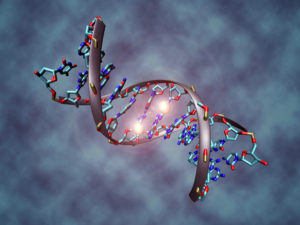 Is human behavior genetic or a result of the environment a person is raised in? The nature versus nurture debate has continued for over a century. According to the results of a recent study pioneered by Sheilagh Hodgins of the University of Montreal, in some people it is both genetics and environment.
Is human behavior genetic or a result of the environment a person is raised in? The nature versus nurture debate has continued for over a century. According to the results of a recent study pioneered by Sheilagh Hodgins of the University of Montreal, in some people it is both genetics and environment.
The study, published last December in the International Journal of Neuropsychopharmacology, found that three common genetic variants can react with each other and the social environment to produce antisocial behavior, or behavior that is better than average.
The results of the study showed that people who have these genetic variants are very sensitive to their environment. When they grow up in a caring, supportive family, their behavior will be better than average. But if they grow up in a chaotic, abusive family or have been subjected to sexual abuse, they are at much higher risk for criminal behavior.
The study was conducted in Sweden using 1,337 high school students between ages 17 and 18. The teens were given anonymous questionnaires, which asked about levels of delinquency, sexual abuse, and family relationships. DNA samples were obtained from the teens’ saliva.
The Genes
According to the study, the gene Monoamine oxidase A (MAOA), an enzyme which affects neurotransmitters such as dopamine and serotonin, can increase the likelihood of antisocial behavior in boys who have the less active variant of the gene, and in girls who have the more active variant. The percentage of people who have these particular genetic variants is as high as 25%.
Another gene, brain derived neurotrophic factor (BDNF), affects a person’s ability to adapt to their environment, especially during formative years.
About 30 % of people have the “low expressing variant” of this gene, which has been shown to cause aggressive behavior in people exposed to such behavior among their peers.
The third gene studied was the serotonin transporter 5-HTTLPR. 20% of people have the low-activity variant of this gene, which has been shown to influence carriers who are exposed to adversity in early childhood to exhibit antisocial behavior.
What are the Implications of this Study?
 This study proves what sociologists and behavioral scientists have long suspected: that people who grow up in abusive environments may be more prone to criminal behavior. But the study also says that the people with these particular genetic variants, an average of 25% of the population, can behave better than average with the right social support system.
This study proves what sociologists and behavioral scientists have long suspected: that people who grow up in abusive environments may be more prone to criminal behavior. But the study also says that the people with these particular genetic variants, an average of 25% of the population, can behave better than average with the right social support system.
Can people with these genetic variants, who are more sensitive to environmental factors, be rehabilitated if exposed to a nurturing environment? Will they be doomed to lifelong criminality if subjected to harsh punishment and prolonged exposure to other criminals in prison? In other words, this study leads to another long debated argument: can potential criminal behavior be stopped before it occurs?
Some say that harsh punishment is the best deterrent to crime. But what if the punishment has the opposite effect?
Please Share Your Feedback
What do you think about this study and the implications it has for our criminal justice system? Do you think criminal behavior is genetic? Please share what you think about this below.
1. [http://www.newsweek.com/new-study-identifies-genes-interact-environment-increase-antisocial-behaviour-291937 ]↩



